|
11/24/2018 0 Comments Bye, Bye at Bar BarLast night was the last performance of the Once Upon a Milton Keynes shows, and I am finding that quite sad. I have really enjoyed going out, sharing the stories within the communities, and using the stories to generate discussions (in the Q&A sessions). It is so fascinating to see what people pick up on and also to find out how they perceive their local area, especially if they see their local as Milton Keynes or just the immediate locality.
It was interesting last night that one of my colleagues from Loughborough University made an epic journey to see the performance, unfortunately she could not stay to the Q&A for I would have been really interested in hearing what questions she might have asked. As for the performance I was thrilled with how it went. The stories just seemed to inhabit me and flow very naturally, taking form in ways which were not premeditated but seemed appropriate for the audience. I think I have found these performances tricky, far more than any usual performance I have done, principally because there seemed to be far more pressure on these performances due to them being part of the PhD. The performances carried a weight which I do not usually experience even in situations where the expectations are high. This is worth considering, because my previous experience of storytelling local heritage have all occurred outside the PhD, so has my nerves affected on the performances? This is where the auto-ethnography element comes in, my experience as a storyteller has been impacted not only by my experience as a resident of Milton Keynes, but as a researcher carrying the weight of my study into the performance. One might argue that as a professional performer I should have the skill with which to separate the researcher from the performer, and to an extent this was possible. However, as anyone who has ever done a PhD will understand, so much effort is put into the research, you live and breathe it until it is always sat in your brain, even when you aren't working on it, so that until it is complete you are always working on it. It will be interesting to speak to people who have seen me storytell before and see if they noticed any change, or whether it is one which inhabits just my emotions. Intentions even unspoken often are understood.
0 Comments
11/17/2018 0 Comments Stories with FriendsWow, that was a cold performance. I was warned by the Friends of St Lawrence that the church was chilly, and the 13 audience members were well wrapped up. What a day for my hot water urn to fail though, so unfortunately there were no hot beverages on hand, but plenty of stories, biscuits, and interesting questions, and luckily the venue was absolutely beautiful with its medieval wall paintings. It was a great privilege to tell the stories of Milton Keynes in such a place.
Despite the cold people the audience seemed to enjoy the stories and stuck around to engage in the Q&A session. I find it quite tricky to switch from storytelling mode to question mode, but the Q&A sessions are becoming as enjoyable as the telling because in the telling I am sharing the stories of Milton Keynes and hoping it is engaging people, but the questions I get asked show people are engaging with the stories, and further more want more information. Despite the chill the Q&A still ran to maximum time, but I was glad to pack up today and go and find warmth. Once I thaw out perhaps there will be more to be said. 11/7/2018 0 Comments Work, work, work...Another great workshop with the participants last night, but a hard one. Last night's workshop was about developing the story, considering who your audience is, where you will be telling, and how to convey the story.
A storyteller has more than just their voice to convey words, so last night we packed a lot in looking at the three key tools of a storyteller: Their body (how to use it to express points or characters, or actions, how to locate sections of the story and objects within it); their voice (the tonal range, sound effects and different character voices and whether telling from the narrator, character, or self voice) and the words they use (be it poetic, heighten, contemporary, kennings, tripling, alliteration). Participants worked hard finding some elements easier than others, but there are three distinct stories forming, each participant taking their own creative path. They have been rather ambitious with their stories and given themselves a lot of work to do. For this project they could have taken an easier path, but all have embraced a level of in-depth investigation I never expected, but one which does most demonstrate the level a working storyteller must engage with. I couldn't be more delighted with how the workshops are going, and truly looking forward to revealing the finished pieces at the exhibition. 11/4/2018 0 Comments Thank You!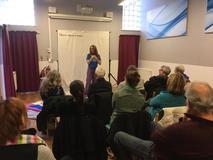 So, a little bit of a catch-up is needed. The workshops are going really well, the digital storytelling workshop produced some really good digital stories and in a surprisingly fast time. The participants, who had never done digital storytelling before, spent the morning refining their stories followed by a tutorial on how to use software. The afternoon focused on recording and editing until the finished pieces were ready to show to the group in the comments and what was produced was really positive. I'm also pleased to say the participants have now got into the full swing of journaling which is producing some really interesting data which looking I'm forward to analysing. The next workshop was the 1st to focus solely on oral storytelling. We did an exercise whereby the participants bought in a story from the local area and then told it to each other, we then swapped stories until their own story finally made it back to them in a rather altered state which created an interesting discussion about how stories change. But perhaps the biggest win of the week was yesterday's performance in Stony Stratford. 20 people turned up to be my audience which was a really nice number for the size of the room and telling to them was really comfortable they reacted well, and when I gave them opportunity to interact they fully participated. I was really pleased with the show, however we did have a few technical issues in that one camera (the older one) suddenly died halfway through the performance, and the second camera was obscured by an audience member who moved their seat to get a better view. I did succeed in getting an audio version of the entire performance and questions and answers session (the second camera giving up halfway through the questions and answer sessions). So aside from the technical gremlins it was a highly successful session with good feedback and questionnaires completed. 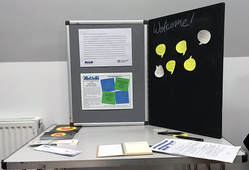 The questions and answer session raised some interesting enquiries about how modern stories differ from more traditional styles, and how our need for bite-size stories through social media and increasing time pressures in our daily lives has led to 2 very different styles of stories which was evident to the audience when they compared the folktales and histories to the urban myths and media stories. The former being longer and more poetic in language, the latter being shorter and not leaving much room for personal embellishment. We also spoke about how memories play a large part in creating modern stories and thusly generating sense of place so that even fairly new buildings and areas can quickly establish a sentimental attachment for some people. As a case in point we discussed a building known locally as the Point which is due to be demolished however it was the first multiplex cinema in the UK which was something that gave Milton Keynes a sense of pride when it first opened and is a place where a lot of people spent time with loved ones and so it has created a great deal of memories despite being part of the new town. We also discussed how using stories as intangible cultural heritage can help inform and create heritage of the future and that this, as well as trying to preserve heritage, is highly important in developing our social culture. I like to give a huge thank you to all of those who came and listened, asked questions, filled in questionnaires, and gave their feedback. You really have made a great deal of difference to my PhD. Thank you! |
Terrie HoweySometimes known as storyteller Red Phoenix, Terrie has been a storyteller since 2004, and run her own storytelling and performing arts company since 2007. In 2016 she began a PhD in applied storytelling and heritage exploring how storytelling as heritage can impact on the sense of place experienced by residents in Milton Keynes in England. Archives
May 2019
Categories |
Search by typing & pressing enter
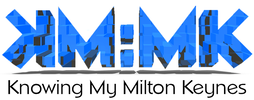
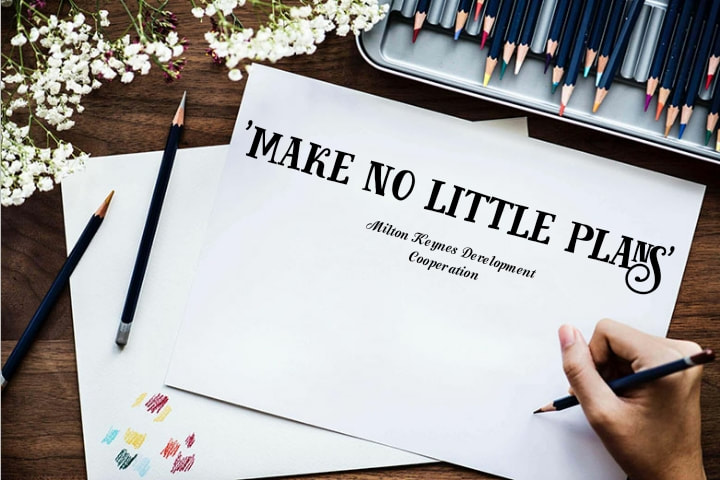
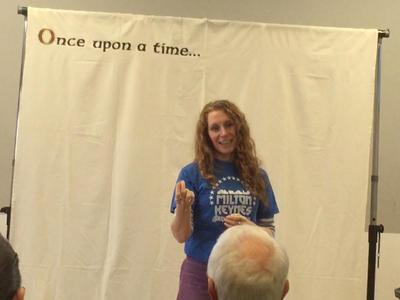
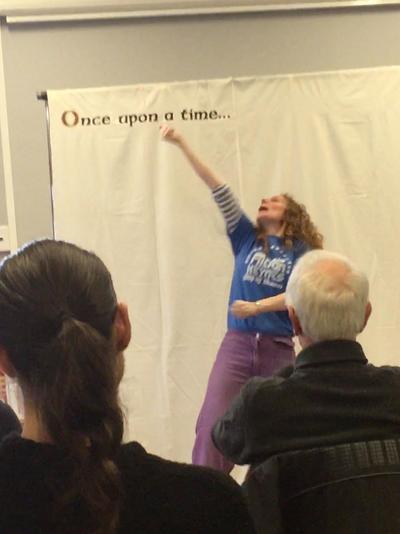
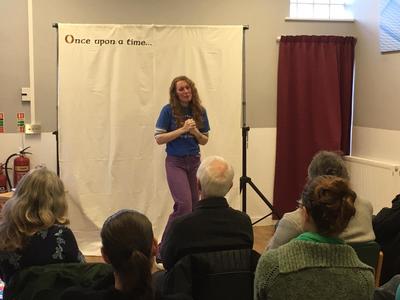
 RSS Feed
RSS Feed
